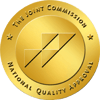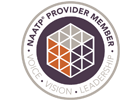Drug abuse remains a critical issue in the United States, affecting millions of individuals each year. While illicit drugs often steal the spotlight, prescription and over-the-counter (OTC) medications are also commonly abused. Understanding which drugs are frequently misused, recognizing the signs of addiction, and knowing how to seek treatment are key steps in combatting this growing problem.
Questions Answered:
- Which Nonprescription Drug is Commonly Abused by Teens?
- What are the Signs of Drug Abuse?
Understanding Drug Abuse
Drug abuse occurs when individuals use substances in a manner not intended by medical professionals. It can involve taking higher doses of prescription drugs, using OTC drugs recreationally, or abusing illicit substances. Prescription drug abuse, for example, involves taking medications without a prescription or in ways other than prescribed, often leading to addiction.
Abusing drugs typically alters the brain's function, leading to dependence. This dependency can cause serious consequences, including changes in heart rate, mental health issues, and, in severe cases, a risk of overdose. Understanding which drugs are most commonly abused is essential for prevention and treatment.
Commonly Abused Drugs
Commonly abused drugs include substances that are legal or illegal. Unfortunately, medicine cabinets often hold abused prescription and OTC medication, making access easy for young people.
Commonly Abused Prescription Drugs
Prescription drug abuse is a widespread problem in the United States. These drugs are often prescribed for legitimate medical purposes, but they carry a high potential for abuse.
- Opioids: Prescription opioids, such as oxycodone, hydrocodone, and morphine, are commonly abused for their pain-relieving properties. Opioid abuse can also slow the heart rate, cause drowsiness, and increase the risk of overdose.
- Benzodiazepines: Medications like Xanax, Valium, and Ativan are often prescribed for anxiety or sleep disorders. However, when misused, these medications can cause sedation and impair cognitive function.
- Stimulants: Drugs like Adderall and Ritalin are prescribed for attention deficit hyperactivity disorder (ADHD). In large doses, these stimulants can cause euphoria, heightened alertness, and energy. Abusing these drugs can lead to heart problems, mental health disorders, and addiction.
Commonly Abused Illicit Drugs
Cocaine: A stimulant that provides a temporary high. Long-term cocaine use damages the heart and brain.
- Heroin: A potent and highly addictive opioid that poses a high risk of overdose.
- Methamphetamine: A stimulant that causes severe mental health and physical health issues with long-term abuse.
- Hallucinogens: LSD and magic mushrooms alter perceptions. Large doses of these substances can lead to dangerous hallucinations.
Break free from the cycle of addiction.
Discover the path to a lasting recovery.
Which Nonprescription Drug is Commonly Abused by Teens?
One of the most commonly abused OTC drugs is dextromethorphan (DXM), which is found in many cold medicines. DXM is abused for its hallucinogenic effects when taken in large doses. Teenagers may mix DXM with alcohol or other substances, leading to dangerous consequences, including seizures and impaired motor skills.
Other commonly abused OTC drugs include cough syrups, which contain codeine, and products like pseudoephedrine, found in some decongestants. These substances can cause euphoric feelings when misused, making them attractive to teens seeking a quick high.
What are the Signs of Drug Abuse?
Recognizing the signs of drug abuse early can prevent further harm and help individuals seek treatment. The signs of abuse can vary depending on the drug, but there are some common indicators to watch for:
- Physical Symptoms: Weight loss, bloodshot eyes, and changes in heart rate.
- Behavioral Changes: Secretive behavior, poor performance at work or school, and withdrawal from loved ones.
- Mental Health Indicators: Mood swings, anxiety, or signs of depression.
Finding Addiction Treatment in Arizona
While drug abuse can have severe consequences, recovery is possible with the right treatment. Several options are available to help people overcome addiction. Treatment for addiction often includes detox programs, inpatient and outpatient rehabilitation, medication-assisted treatment, and support groups.
Soberman’s Estate is Arizona's leading treatment center for men, offering a peaceful and clinically excellent environment for adult men seeking help with substance use disorders and related issues.
If you or someone you care about is facing addiction, support is available. Contact our Admissions Director for a free consultation to begin the path to recovery. Call (480) 712-7718 or email info@SobermansEstate.com.
A better life is possible.
Seek guidance today.





